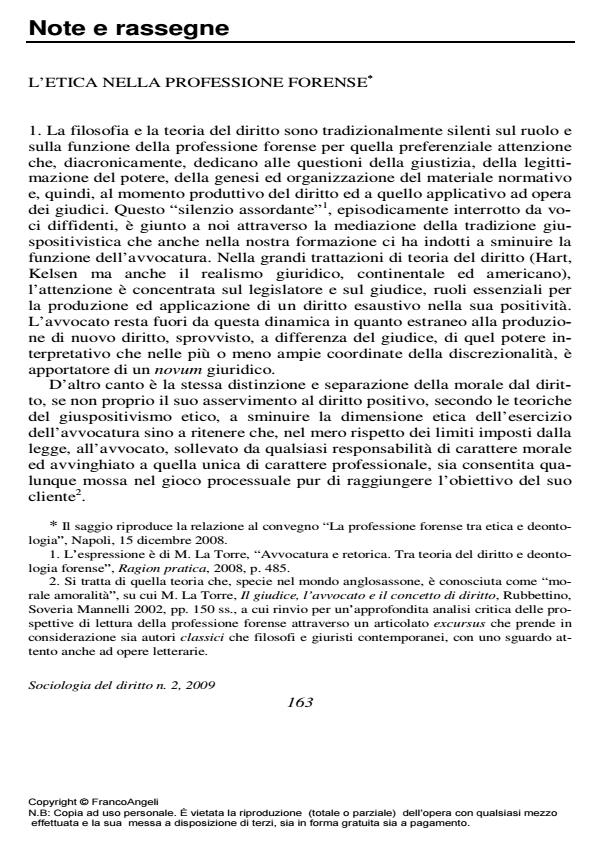L'etica nella professione forense
Journal title SOCIOLOGIA DEL DIRITTO
Author/s Angelo Abignente
Publishing Year 2009 Issue 2009/2
Language Italian Pages 10 P. 163-172 File size 290 KB
DOI 10.3280/SD2009-002011
DOI is like a bar code for intellectual property: to have more infomation
click here
Below, you can see the article first page
If you want to buy this article in PDF format, you can do it, following the instructions to buy download credits

FrancoAngeli is member of Publishers International Linking Association, Inc (PILA), a not-for-profit association which run the CrossRef service enabling links to and from online scholarly content.
The Ethics of the Legal Profession - The positive law tradition has hitherto had nothing to say about the legal profession’s role and function, focusing more interest on questions of justice, of the legitimisation of power and of the genesis and organisation of normative material. This trend is now subject to a reversal promoted by new, neo-constitutionalist, narrativist, analytical and hermeneutic experiences, which no longer focuses attention on the moment when law is produced, but on the one when it is applied, reappraising and revitalising the function of the judge, of the attorneys and of other legal professionals. The attorney becomes an active protagonist, an intermediary not only between conflicting interests in a controversy, but also between opposing public interests, while the reappraisal of his role stimulates thinking about the ethical dimension of how the legal profession is practised. Referring to the theories of Habermas and of Alexy, the author treats the reasonable status of argumentation as the supreme ethical instance necessary for a decision that interferes in the sphere of another person’s action. At the same time, however, the control of the reasonable status of the respective arguments on both sides is the ethical instance required of the attorneys taking part in the legal proceedings. It takes the form of compliance with the rules characteristic of the practical discourse, primarily the rule of free discursive participation that enables the onus of the argumentation to be explained. Ernesto de
Angelo Abignente, L'etica nella professione forense in "SOCIOLOGIA DEL DIRITTO " 2/2009, pp 163-172, DOI: 10.3280/SD2009-002011